Selected Projects and Publications
Participatory, not Punitive: Student-Driven AI Policy Recommendations in a Design Classroom
Kaoru Seki and Manisha Vijay (co-first authors), Yasmine Kotturi
Most classroom AI policies are written without student input and focus on penalizing misuse. This paper examines how participatory, student-led AI policy design can address this disconnect. Through a three-part participatory workshop series in a graduate design studio, students co-developed ten policy recommendations, later visualized in a zine.
CHI 2026
Generative AI is reshaping education, yet most classroom policies are written without students and focus on penalizing misuse. This top-down approach sidelines those most affected—students—who have little say in governing their everyday learning, resulting in confusion and fear about acceptable use. We examine how participatory, student-led AI policy design can address this disconnect. We position students as lead users—early adopters of generative AI—and report on a three-part participatory workshop series in a graduate design studio at a minority-serving university. Two student co-researchers, without faculty present, facilitated workshops where eight participants surfaced candid AI uses and co-developed ten policy recommendations, later visualized in a zine. Two additional students who declined workshops due to AI skepticism contributed via follow-up interviews. Findings highlight the need for safe spaces to discuss unfiltered AI practices and suggest that student-authored policies can clarify expectations and support more purposeful AI use.
Quentin Romero Lauro, Aakash Gautum, Yasmine Kotturi
Through community-centered workshops at a feminist makerspace, this study examines how entrepreneurs collectively navigate AI-assisted business planning—revealing tensions between instant outputs and reflective sensemaking, and how peer support enables adoption, adaptation, and refusal of AI tools.
CHI 2026
Entrepreneurs in resource-constrained communities often lack time and support to translate ideas into actionable business plans. While generative AI promises assistance, most systems assume high digital literacy and overlook community infrastructures that shape adoption. We report on the community-centered design and deployment of BizChat, an LLM-powered business planning tool, introduced across four workshops at a feminist makerspace in Pittsburgh, PA. Through log data (N=30) and interviews (N=10), we examine how entrepreneurs build resilience through collective AI literacy development—encompassing adoption, adaptation, and refusal of AI. Our findings reveal a central tension: while BizChat lowered barriers to accessing capital by translating ideas into "business language," this ease raised questions about whether instant AI outputs undermine sensemaking essential to planning. We show how peer support helped entrepreneurs navigate this tension. We contribute design implications—including productive friction, communal scaffolds, and co-optability—for strengthening resilience amid technological change.
BizChat: Scaffolding AI-Powered Business Planning for Small Business Owners Across Digital Skill Levels
Quentin Romero Lauro, Aakash Gautum, Yasmine Kotturi
In this demo, we introduce BizChat, an AI-powered web application designed to help small business owners complete tedious yet essential back-office tasks (e.g., writing a business plan). Drawing from learning sciences, BizChat provides accessible, just-in-time support tailored to users’ digital skills and business goals.
CHIWORK Demo 2025
Generative AI can help small business owners automate tasks, increase efficiency, and improve their bottom line. However, despite the seemingly intuitive design of systems like ChatGPT, significant barriers remain for those less comfortable with technology. To address these disparities, prior work highlights accessory skills—beyond prompt engineering—users must master to successfully adopt generative AI including keyboard shortcuts, editing skills, file conversions, and browser literacy. Building on a design workshop series and 15 interviews with small businesses, we introduce BizChat, a large language model (LLM)-powered web application that helps business owners across digital skills levels write their business plan—an essential but often neglected document. To do so, BizChat's interface embodies three design considerations inspired by learning sciences: ensuring accessibility to users with less digital skills while maintaining extensibility to power users ("low-floor-high-ceiling"), providing in situ micro-learning to support entrepreneurial education ("just-in-time learning"), and framing interaction around business activities ("contextualized technology introduction"). We conclude with plans for a future BizChat deployment.
A Node on the Constellation: The Role of Feminist Makerspaces in Building and Sustaining Alternative Cultures of Technology Production
DEI Award Recipient
Erin Gatz, Yasmine Kotturi, Andrea Afua Kwamya, Sarah E Fox
We examine how feminist makerspaces sustain themselves as alternative communities challenging dominant technology production cultures. To do so, we conduct interviews with eighteen founders and members across eight U.S. feminist makerspaces, combined with autoethnographic reflection from the first author who cofounded a feminist makerspace.
CSCW 2025
Feminist makerspaces offer community-led alternatives to dominant tech cultures by centering care, mutual aid, and collective knowledge production. While prior CSCW research has explored their inclusive practices, less is known about how these spaces sustain themselves over time. Drawing on interviews with 18 founders and members across 8 U.S. feminist makerspaces as well as autoethnographic reflection, we examine the organizational and relational practices that support long-term endurance. We find that sustainability is not achieved through growth or institutionalization, but through care-driven stewardship, solidarity with local justice movements, and shared governance. These social practices position feminist makerspaces as prefigurative counterspaces-sites that enact, rather than defer, feminist values in everyday practice. This paper offers empirical insight into how feminist makerspaces persist amid structural precarity, and highlights the forms of labor and coalition-building that underpin alternative sociotechnical infrastructures.
Understanding the Challenges of Maker Entrepreneurship
Natalie Friedman, Alexandra Bremers, Adelaide Nyanyo, Ian Clark, Yasmine Kotturi, Laura Dabbish, Wendy Ju, Nikolas Martelaro
This research examines the transition from maker to entrepreneur and the unique challenges creative people face when attempting to commercialize their physical goods. Through interviews with twenty maker entrepreneurs producing items like lamps and stickers, six creative service providers, and seven support professionals, the study identifies key obstacles and opportunities for technology design to better support this population.
CSCW 2025
The maker movement embodies a resurgence in DIY creation, merging physical craftsmanship and arts with digital technology support. However, mere technological skills and creativity are insufficient for economically and psychologically sustainable practice. By illuminating and smoothing the path from "maker" to "maker entrepreneur," we can help broaden the viability of making as a livelihood. Our research centers on makers who design, produce, and sell physical goods. In this work, we explore the transition to entrepreneurship for these makers and how technology can facilitate this transition online and offline. We present results from interviews with 20 USA-based maker entrepreneurs (i.e., lamps, stickers), six creative service entrepreneurs (i.e., photographers, fabrication), and seven support personnel (i.e., art curator, incubator director). Our findings reveal that many maker entrepreneurs 1) are makers first and entrepreneurs second; 2) struggle with business logistics and learn business skills as they go; and 3) are motivated by non-monetary values. We discuss training and technology-based design implications and opportunities for addressing challenges in developing economically sustainable businesses around making.
Deconstructing the Veneer of Simplicity: Co-Designing Introductory Generative AI Workshops with Local Entrepreneurs
Yasmine Kotturi, Angel Anderson, Glenn Ford, Michael Skirpan, Jeffrey Bigham
In this paper, we designed an interactive workshops series aimed to onboard local entrepreneurs to generative AI platforms for small business. We detail the importance of communal and supportive exposure to generative AI tools for local entrepreneurs, scaffolding actionable use (and supporting non-use), demystifying generative AI technologies by emphasizing entrepreneurial power, while simultaneously deconstructing the veneer of simplicity to address the many operational skills needed for successful application.
CHI 2024
Generative AI platforms and features are permeating many aspects of work. Entrepreneurs from lean economies in particular are well positioned to outsource tasks to generative AI given limited resources. In this paper, we work to address a growing disparity in use of these technologies by building on a four-year partnership with a local entrepreneurial hub dedicated to equity in tech and entrepreneurship. Together, we co-designed an interactive workshops series aimed to onboard local entrepreneurs to generative AI platforms. Alongside four community-driven and iterative workshops with entrepreneurs across five months, we conducted interviews with 15 local entrepreneurs and community providers. We detail the importance of communal and supportive exposure to generative AI tools for local entrepreneurs, scaffolding actionable use (and supporting non-use), demystifying generative AI technologies by emphasizing entrepreneurial power, while simultaneously deconstructing the veneer of simplicity to address the many operational skills needed for successful application.
Yasmine Kotturi, Jenny Yu, Pranav Khadpe, Harvey Zheng, Erin Gatz, Sarah Fox, Chinmay Kulkarni
In this paper, we describe a multi-year partnership with a local feminist makerspace to build a social platform, called Peerdea, which centered creative entrepreneurs’ needs such that online feedback and information exchange, and goal setting and accountability were more readily available to them. Through an iterative, community-collaborative approach with 46 creative entrepreneurs, we report on the kinds of peer support entrepreneurs sought on Peerdea such as feedback on in-progress and unpolished work.
CSCW 2024
Creative entrepreneurs rely on online platforms to build community in order to overcome isolated work conditions. However, because of frequent attempts by larger brands to use their work without permission, creative entrepreneurs constrain their use of social platforms in order to safeguard their intellectual property. In this paper, we describe a multi-year partnership with a feminist makerspace to build a social platform, called Peerdea, that centered creative entrepreneurs' needs such that online feedback and information exchange, and goal setting and accountability were more readily available to them. Through an iterative, community- collaborative approach with 46 creative entrepreneurs, we report on the kinds of peer support entrepreneurs sought on Peerdea such as feedback on in-progress and unpolished work. We argue that by aligning Peerdea's design with the makerspace's community of practice, Peerdea leveraged the relationship and trust building which occurs more readily in person for entrepreneurs. In addition, we highlight the role of a community leader who actively managed the relationships between researchers and entrepreneurs, surfaced failures and championed successes, and provided critical mediation for co-design when participants' livelihoods were implicated.
Exploring the Role of Social Support when Integrating Generative AI in Small Business Workflows
Quentin Romero Lauro, Jeffrey P. Bigham, Yasmine Kotturi
We interviewed 11 entrepreneurs and support personnel to detail how entrepreneurs resourcefully leveraged their local networks to discover new use-cases of generative AI (e.g., by sharing accounts), assuage heightened techno-anxieties (e.g., by recruiting trusted confidants), overcome barriers to sustained use (e.g., by receiving wrap-around support), and establish boundaries of use.
CSCW 2024 Poster
Small business owners stand to benefit from generative AI technologies due to limited resources, yet they must navigate increasing legal and ethical risks. In this paper, we interview 11 entrepreneurs and support personnel to investigate existing practices of how entrepreneurs integrate generative AI technologies into their business workflows. Specifically, we build on scholarship in HCI which emphasizes the role of small, offline networks in supporting entrepreneurs' technology maintenance. We detail how entrepreneurs resourcefully leveraged their local networks to discover new use-cases of generative AI (e.g., by sharing accounts), assuage heightened techno-anxieties (e.g., by recruiting trusted confidants), overcome barriers to sustained use (e.g., by receiving wrap-around support), and establish boundaries of use. Further, we suggest how generative AI platforms may be redesigned to better support entrepreneurs, such as by taking into account the benefits and tensions of use in a social context.
Yasmine Kotturi and Julie Hui (shared first authorship), TJ Johnson, Lutalo Sanifu, Tawanna Dillahunt
Drawing on two multi-year programs for small-scale tech capacity building in post-industrial U.S. cities, this article presents a comparative analysis and retrospective ethnography to investigate the challenges and strategies for sustained community-based research in computing. In particular, our work aimed to better understand and contribute the necessary considerations and dynamics among the academic-community partnerships attributed to sustaining the community-based programs over time.
CSCW 2024
The field of human-computer interaction (HCI) has traditionally focused on the design of novel technology artifacts. However, ensuring considerations for artifact maintenance and repair is crucial to sustainably supporting the populations they aim to serve over the long term. Drawing on two multi-year programs for tech capacity building in post-industrial U.S. cities, this article presents a comparative analysis to investigate the challenges and strategies for sustained community-based research in computing. In particular, our work detailed three considerations for academic-community partnerships. First, long-term partnerships prioritized transferring trust across academic and community personnel and continually set expectations that responded to evolving community initiatives (i.e., relational sustainability). Second, partnerships used academic support as a way to kickstart community initiatives, and flexibly reframed interventions to stay aligned with evolving community goals (i.e., economic sustainability). Third, partnerships trained personnel to provide technical support alongside interventions and prioritized advice that resisted short-term trends (i.e., technical sustain- ability). We provide concrete examples of how our two academic-community partnerships carried out such suggestions—such details go unreported in scholarly articles yet are essential for sustainability considerations. We discuss ongoing challenges, such as rethinking when longevity should and should not be the end goal.
Tech Help Desk: Support for Local Entrepreneurs Addressing the Long Tail of Computing Challenges
Yasmine Kotturi, TJ Johnson, Michael Skirpan, Sarah E Fox, Jeffrey P Bigham, Amy Pavel
Even entrepreneurs whose businesses are not technological (e.g., handmade goods) need to be able to use a wide range of computing technologies in order to achieve their business goals. In this paper, we follow a participatory action research approach and collaborate with various stakeholders at an entrepreneurial co-working space to design “Tech Help Desk”, an on-going technical service for entrepreneurs, which has been running for over four years.
CHI 2022
Even entrepreneurs whose businesses are not technological (e.g., handmade goods) need to be able to use a wide range of computing technologies in order to achieve their business goals. In this paper, we follow a participatory action research approach and collaborate with various stakeholders at an entrepreneurial co-working space to design "Tech Help Desk", an on-going technical service for entrepreneurs. Our model for technical assistance is strategic, in how it is designed to fit the context of local entrepreneurs, and responsive, in how it prioritizes emergent needs. From our engagements with 19 entrepreneurs and support personnel, we reflect on the challenges with existing technology support for non-technological entrepreneurs. Our work highlights the importance of ensuring technological support services can adapt based on entrepreneurs' ever-evolving priorities, preferences and constraints. Furthermore, we find technological support services should maintain broad technical support for entrepreneurs' long tail of computing challenges.
Recent awards and grants:
Thank you to the supporters of my work:
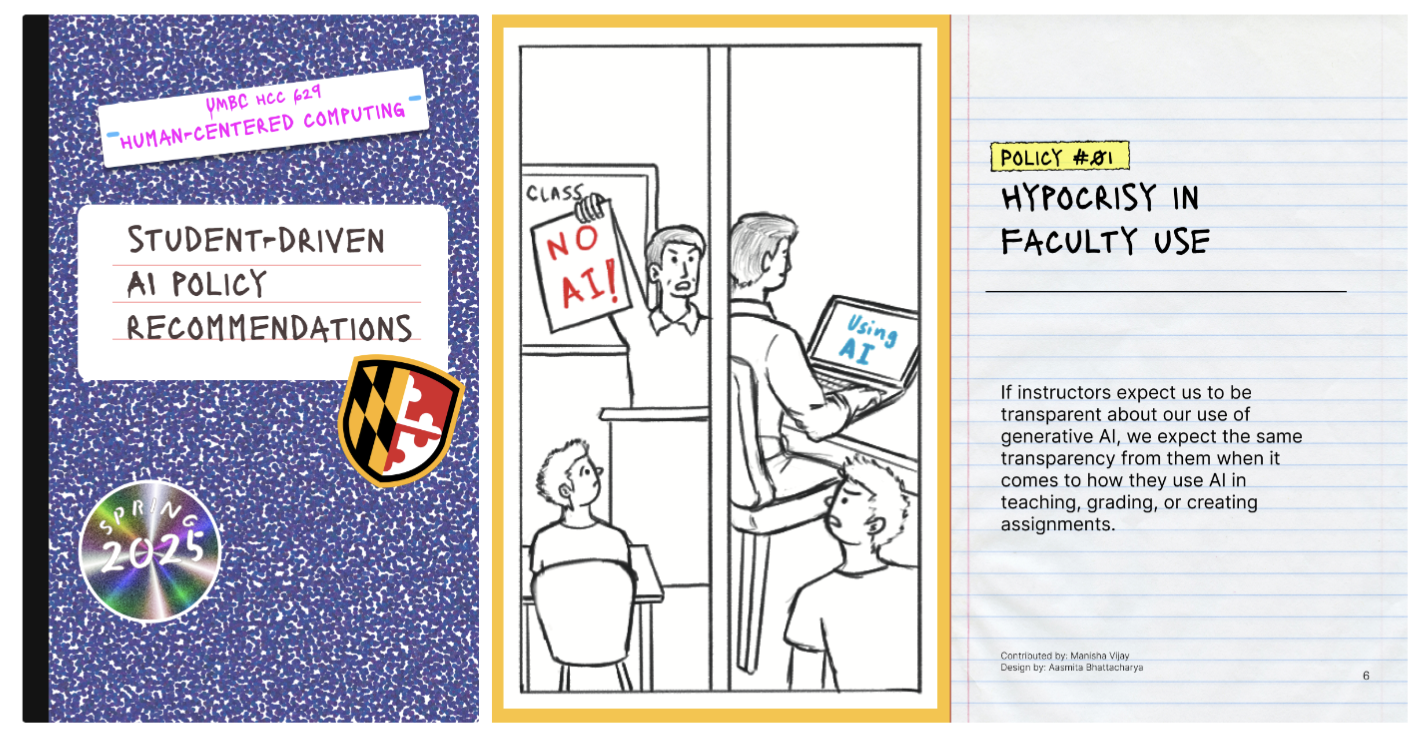
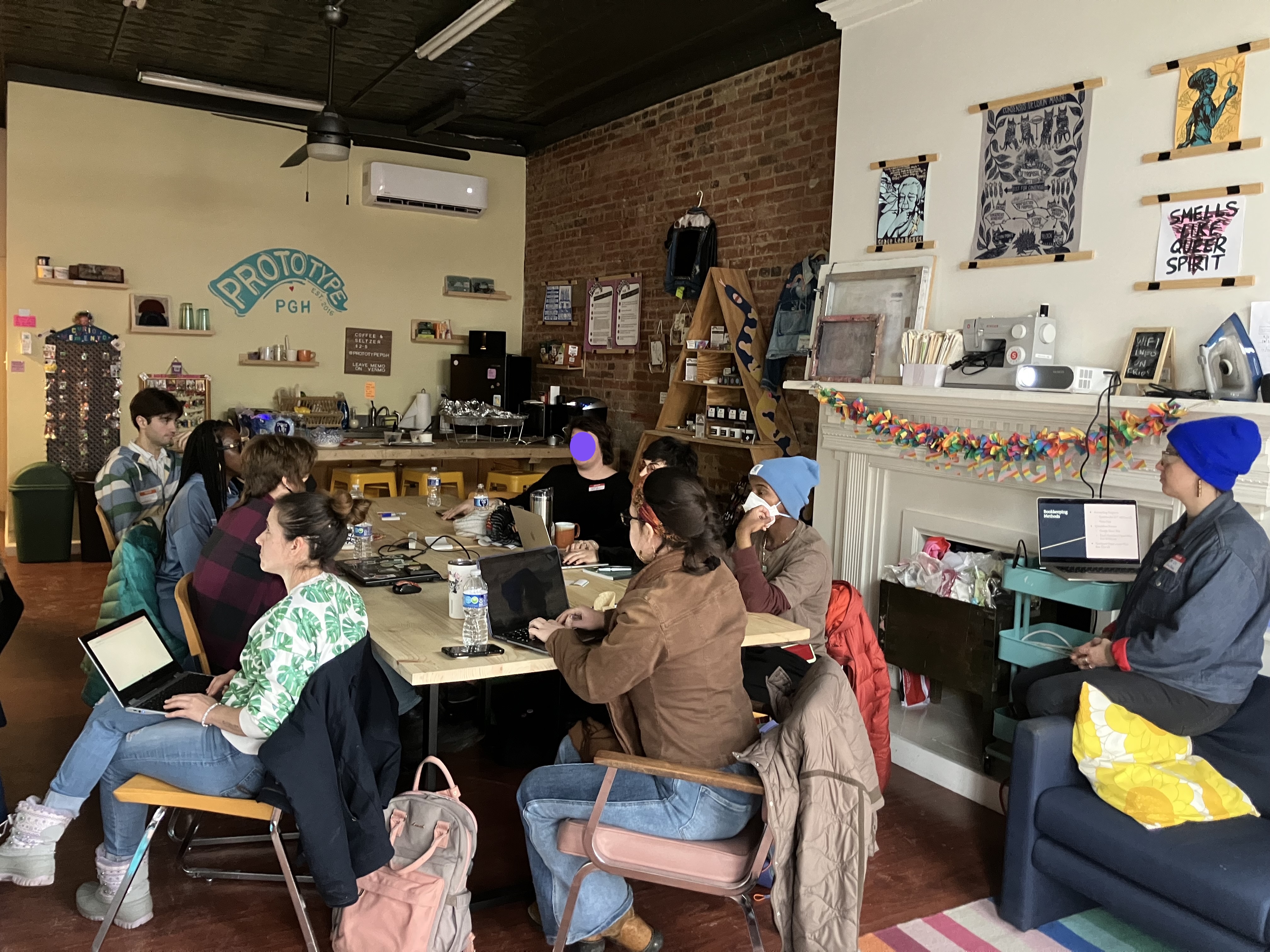
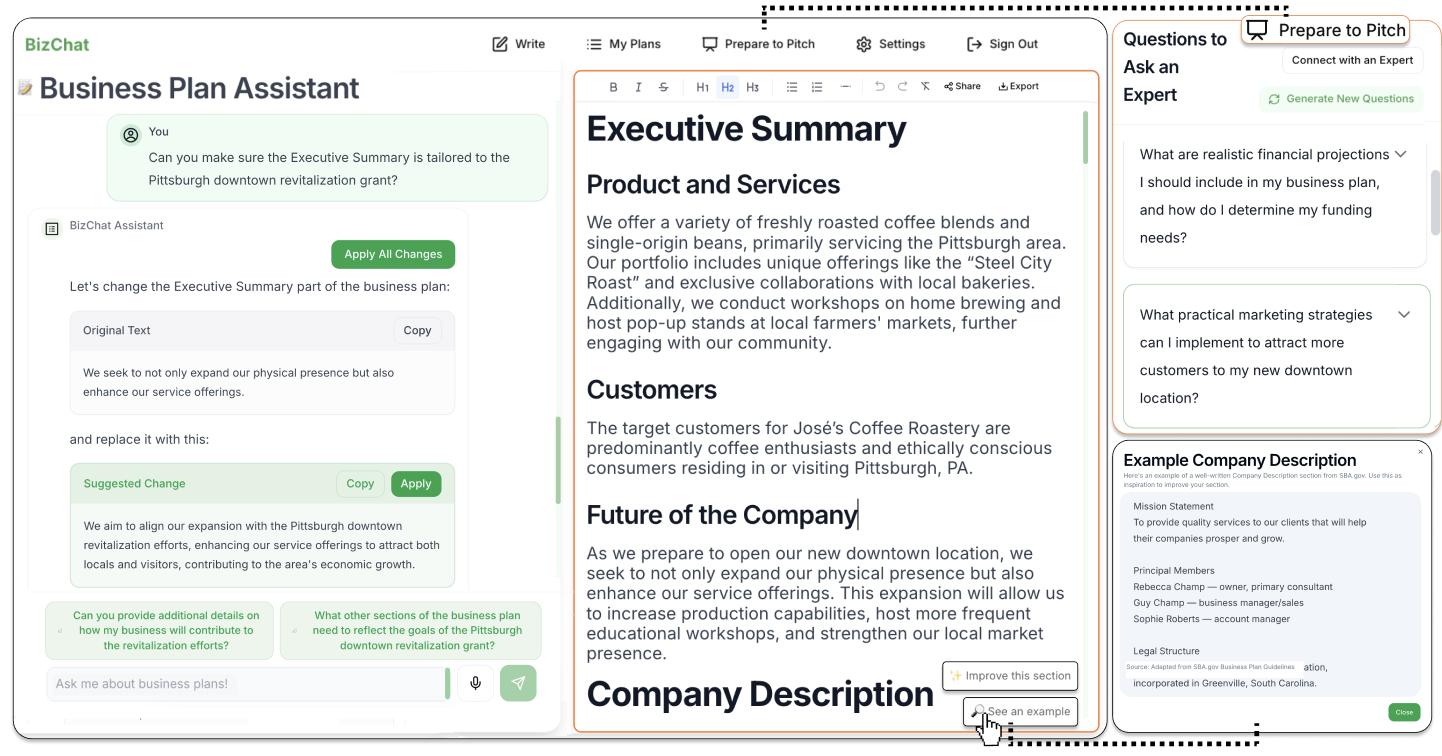
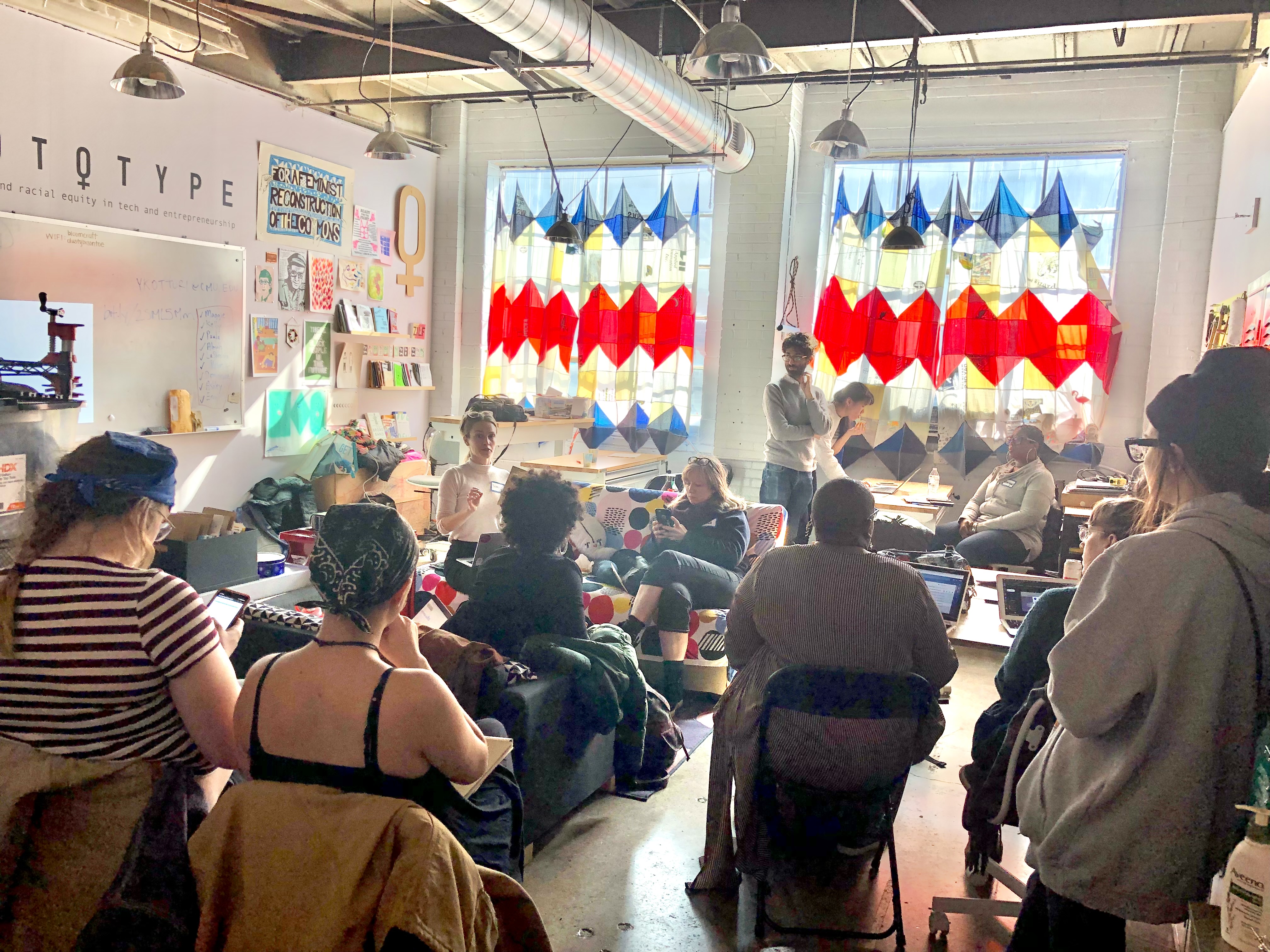

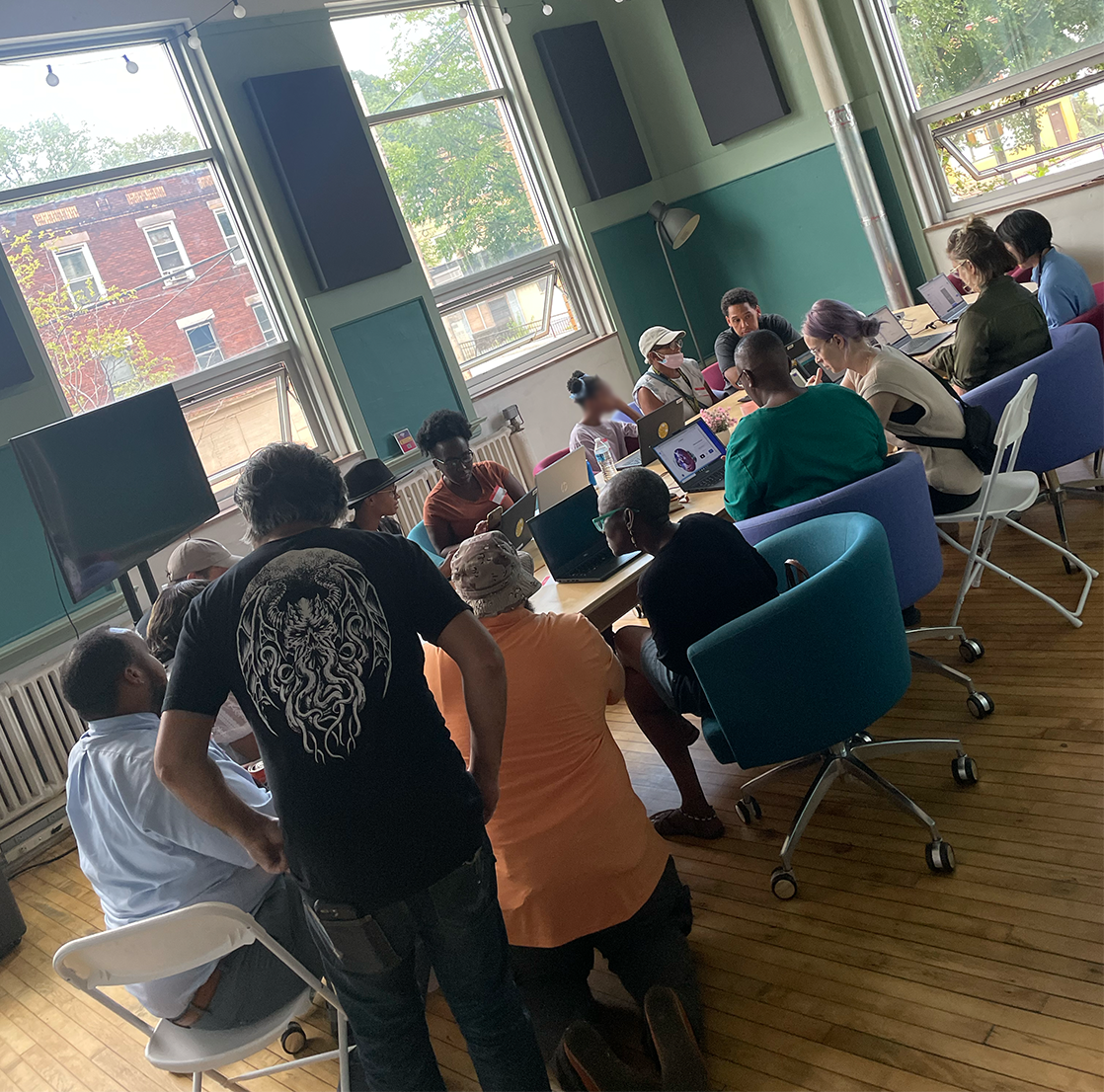
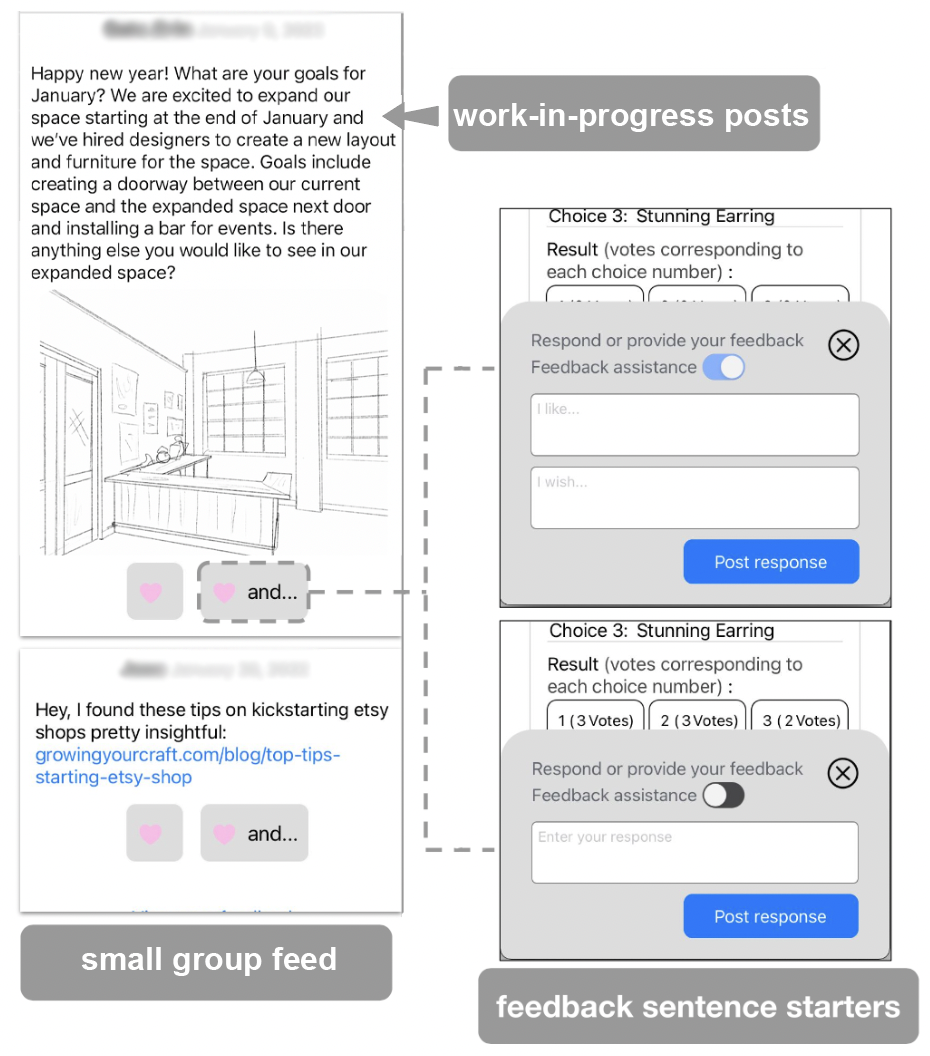
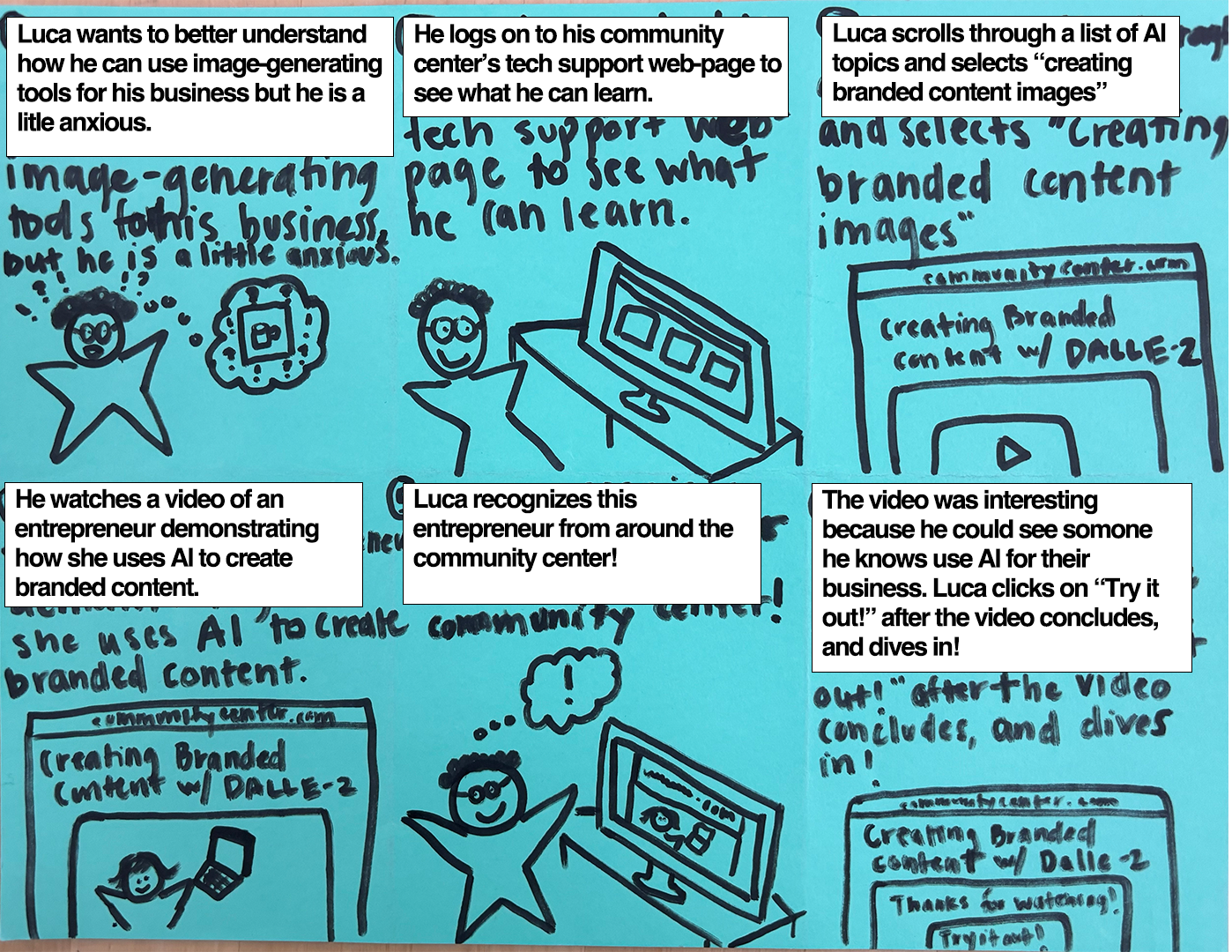
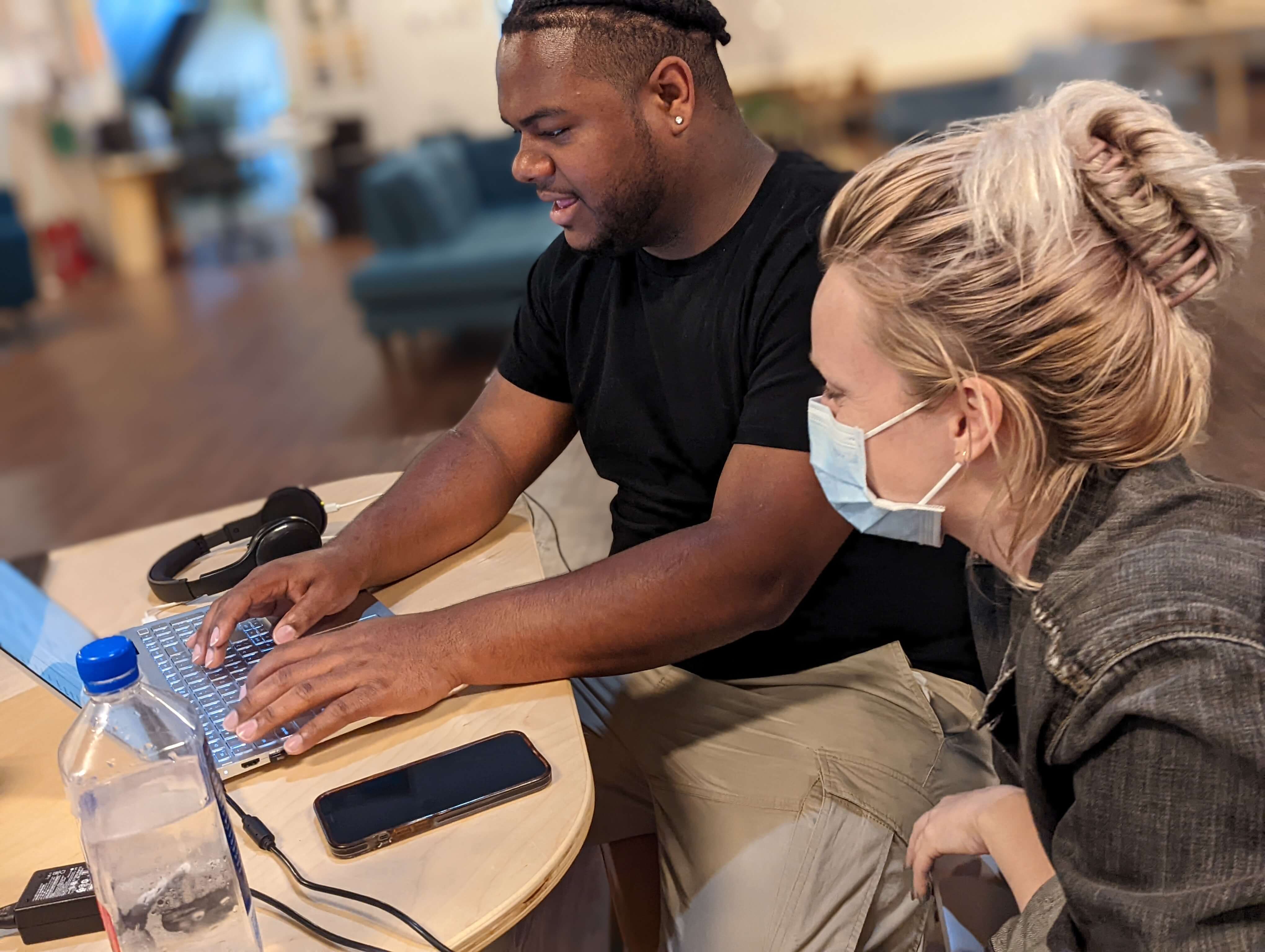
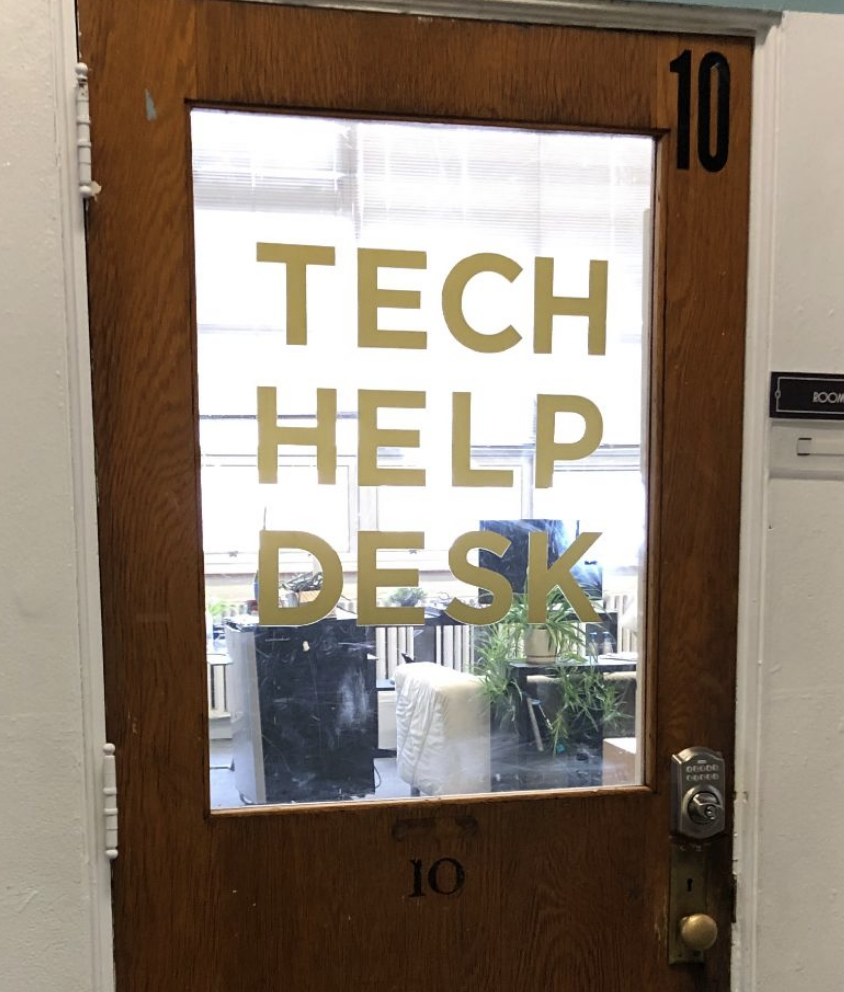

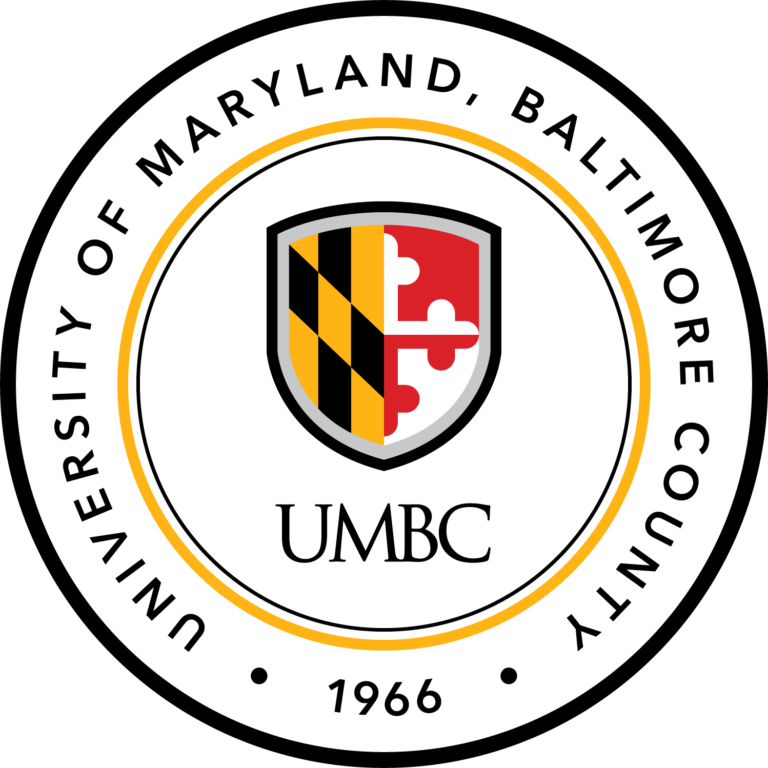




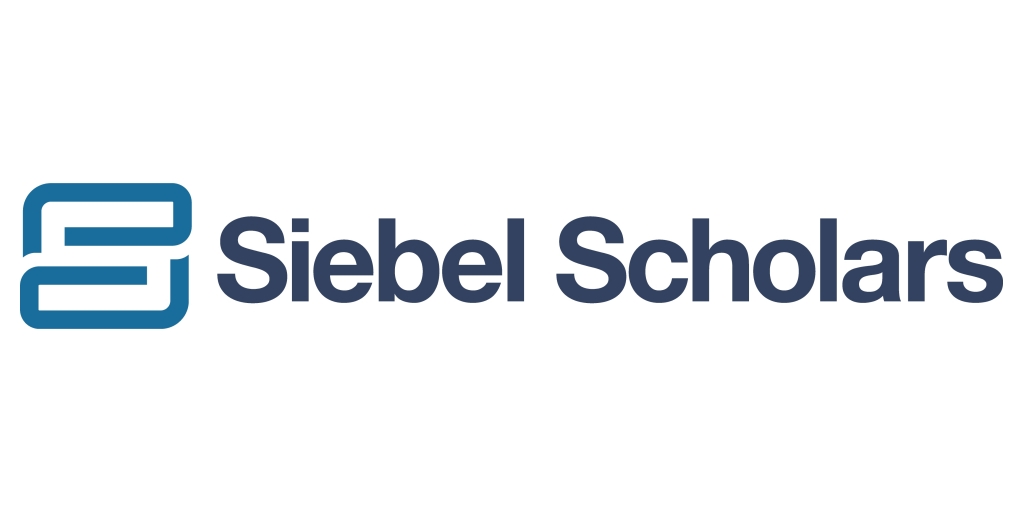


 Selected by UMBC Provost to be a USM Generative AI Pedagogy fellow in the inaugural cohort 2025-2026!
Selected by UMBC Provost to be a USM Generative AI Pedagogy fellow in the inaugural cohort 2025-2026! 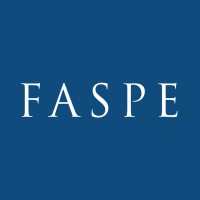 Honored to be selected as a 2025 FASPE Design and Technology Fellow!
Honored to be selected as a 2025 FASPE Design and Technology Fellow! Grateful to be deemed an EECS Rising Star
Grateful to be deemed an EECS Rising Star